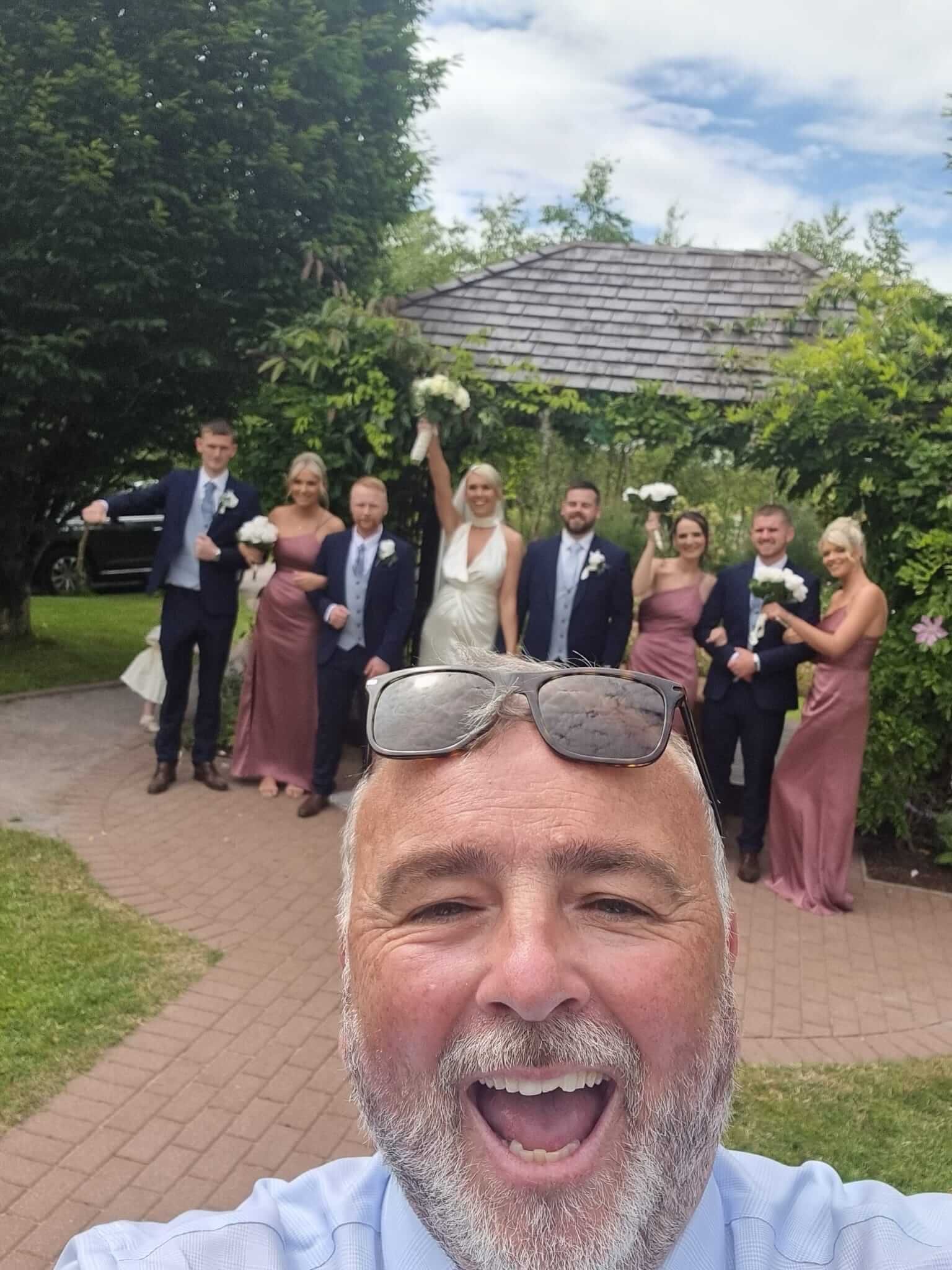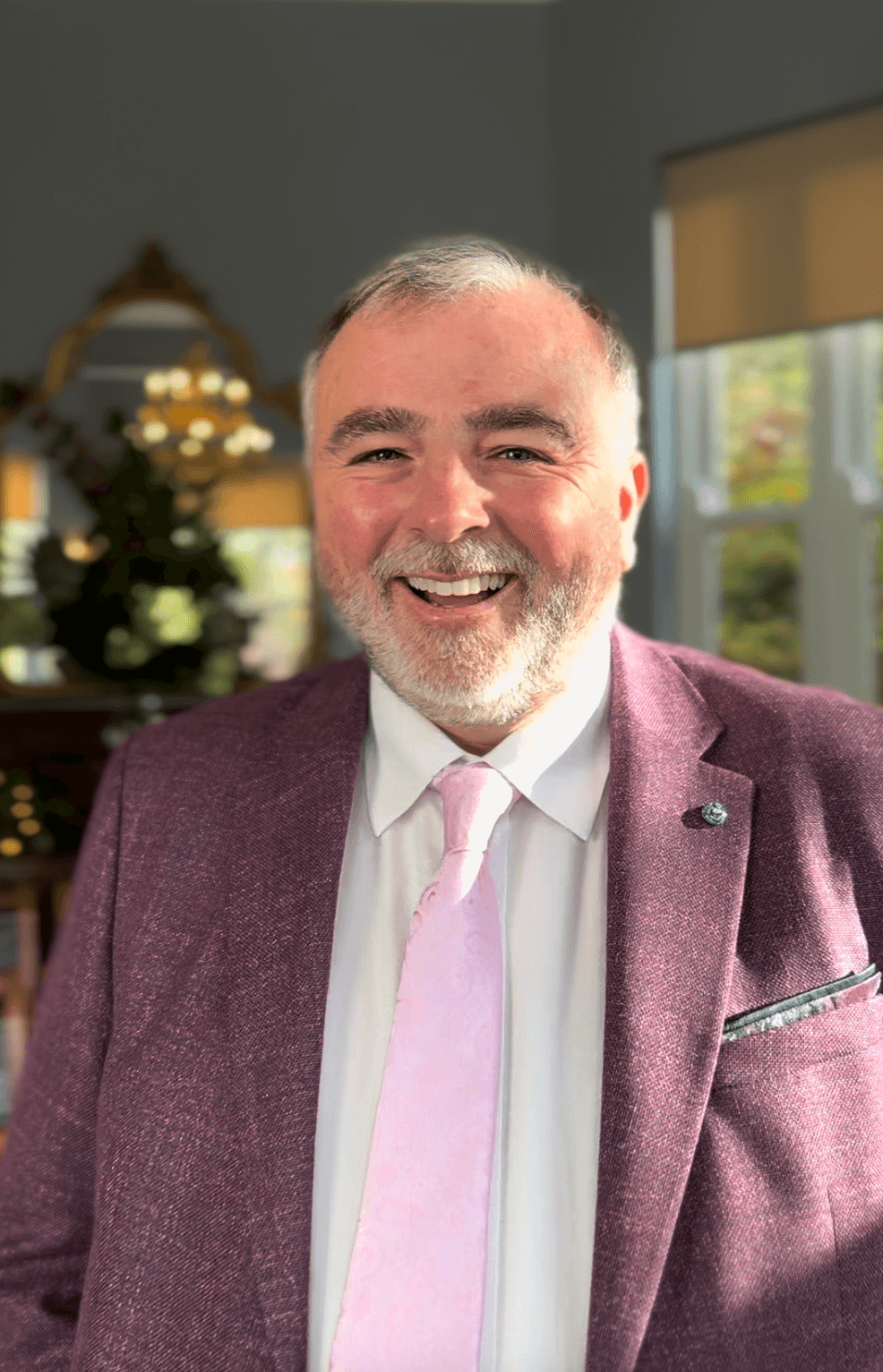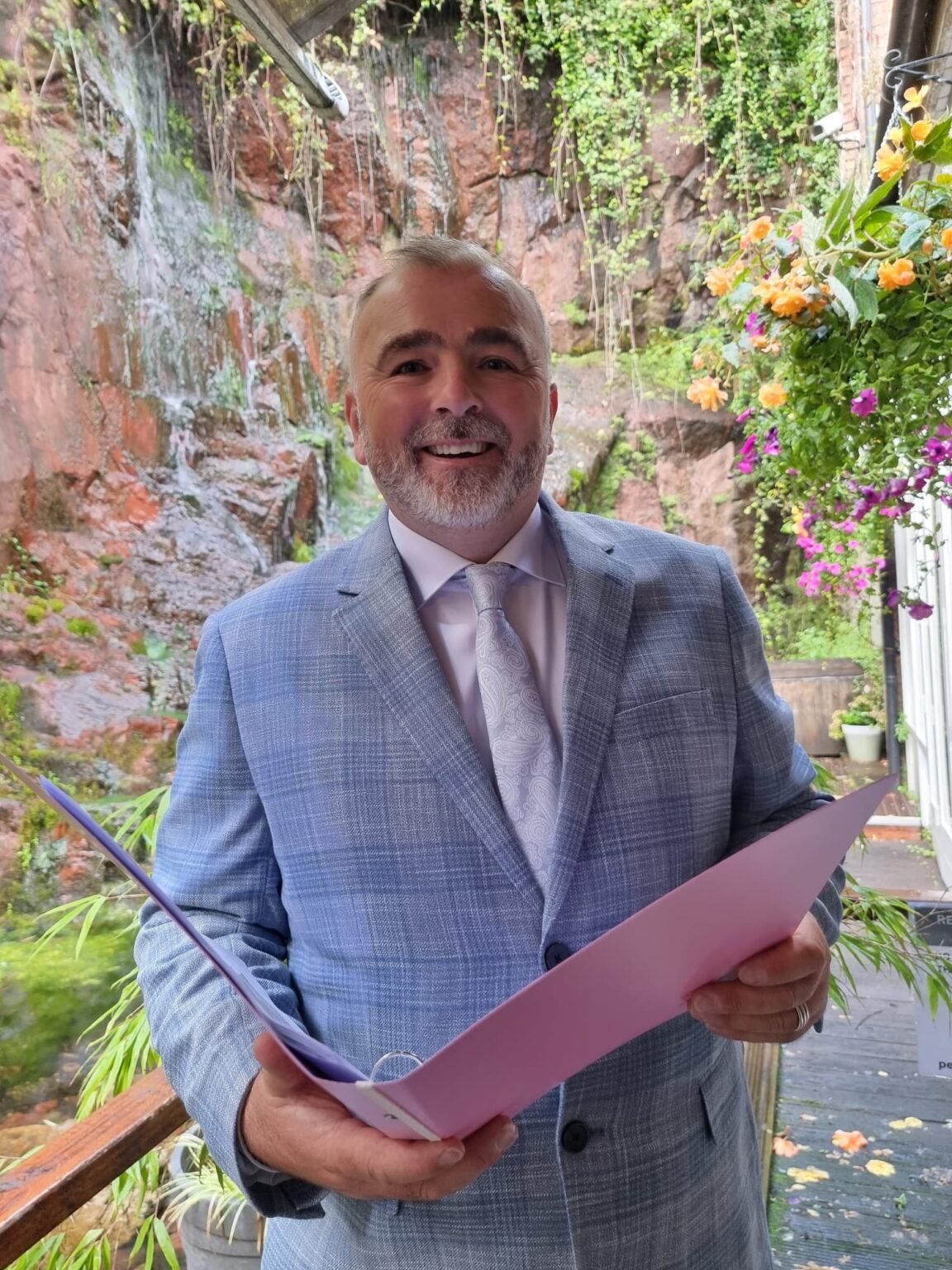
Minimum you need to get married legally:
- You must give 3 months notice to the Civil Registration Service.
- You must have 2 witnesses over the age of 18 at the time of your appointment.
- You can only be legally married by a legal solemniser.
- You will need more time than 3 months before you get married. You will also need to make an appointment with the Registrar.
- You need to book your Religious Solemniser before your appointment with the Civil Registration Service.
- You will need to bring documents with you for the appointment with the Civil Registration Service. You will need to prove who you are and that you were not married before.
How to get married legally in Ireland
No matter how you marry in Cork or Ireland essentially there are 3 ways of getting married legally in Ireland. Firstly with a Civil Registrar at the registry office. Secondly with a secular solemniser, where there is no mention of God, Spirit or religious content at all and you may have to join their organisation. Finally getting married with a religious solemniser. If you choose one like me, you also get to choose the content and venue. There are a few legal restrictions on the venue you can choose for a legal wedding, please see below.
3 Months Notice to HSE Civil Registry Office Before wedding
It is really important that you get your appointment with the Civil Registration Service as soon as you can. Whether you marry in Cork or anywhere in Ireland you must have 3 clear months notice before your wedding day.
Coupled with the 3 months notice, you also need time to get an appointment with the Civil Registrar. Sometimes there can be delays in getting appointments. It is best to do is as soon as possible. You need to have your HSE Registered Solemniser in Place and booked before going to appointment.
Different Civil Registration Offices seem to have different ways of operating their appointments process. So best to just check with them.
Why a Religious Marriage?
Getting married with a religious solemniser such as me or one of my fellow Ministers, has a a good few advantages.
Advantages of a Religious Solemniser
- You don’t have to join our organisation to get married.
- Most Ministers will do a wedding on a day/date of your choice, once not booked already.
- You get to choose the content, music, prayers, poems, readings.
- You get to choose the Ceremony enhancements such as Unity Candle, Hand-fasting, Sand Ceremony etc.
- You get to choose the venue, see venue criteria below.
- Your Religious Solemniser will have many ideas and will put a unique ceremony together for you.
The Ceremony will be all about you and your love story, your day, your way!
As OneSpirit Ireland Ministers we are trained to hold all kinds of ceremonies that are inclusive of all.
OneSpirit Ireland Ministers work throughout Ireland, there are over 100 of us!
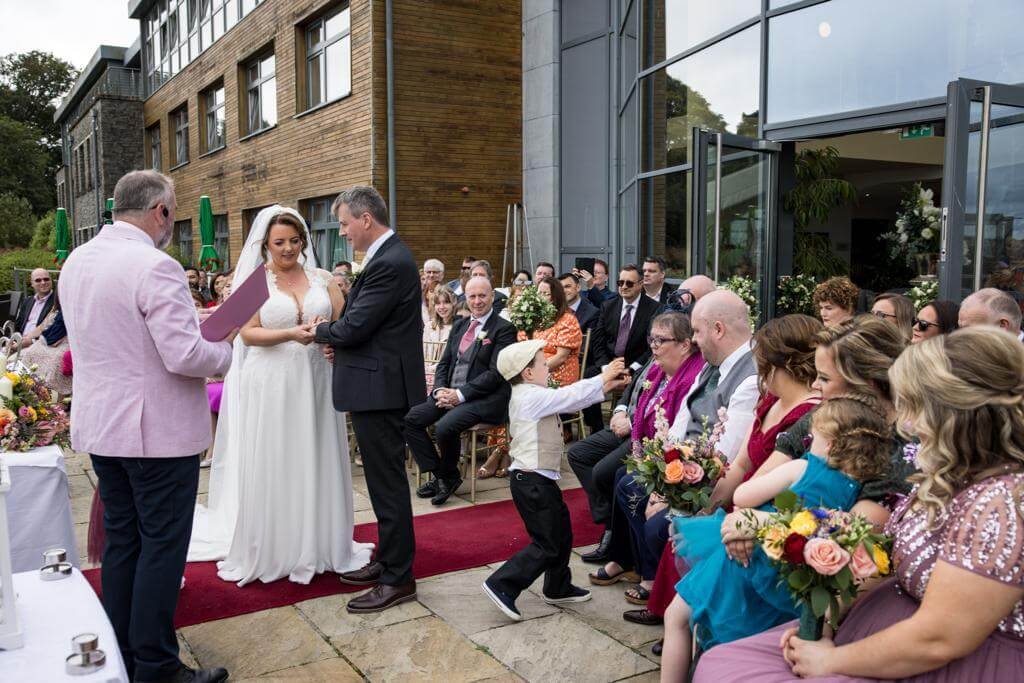
Where can I get married legally?
- The venue must be a building open to the public, with an address.
- A courtyard, garden, field or piece of ground that is open to the public and is near to and usually shared with the building.
- Clearly recognised by description and location.
- Allow unrestricted access and be accessible to all.
- Your religious Solemniser will vet and ok the location.
- The venue or the place on the grounds where your wedding will take place, must be suitable to the occasion.
- Alcohol should not be served in the location of your wedding for at least an hour before and after your ceremony.
- Many hotels throughout Ireland meet the above criteria and some have special places on their grounds.
Main criteria for legal wedding venue
The main criteria is that the venue is open to the public, so a GAA, Rugby, Golf or Cricket Club Hall may work.
Most hotels will work, but if there is a bar in the ceremony room, it cannot be open before or during the ceremony. This option for many is simply the easiest. If you stay the night before you can get dressed there and they have everything to hand.
A beach if it is connected to a premises that is open to the public will work also. However a beach not connected to a premises, unfortunately will not.
A bedroom in a hotel will not work as it is seen as private! The hotel will work but for a legal wedding the bar should not be open.
Call or email me to find out more if you plan to marry in Cork.
There are more than 100 of us operating throughout Ireland so if you need a name of someone to marry you outside of Cork, give me a shout.
What declarations must I make to marry?
As part of the ceremony you must state 2 declarations:
- That you do not know of any impediment to the marriage.
- That you accept each other as husband / wife / spouse.
The ceremony will also allow for family members and guests to participate. Your Religious Solemniser will advise on how best to achieve this and make your ideas a reality, so that the Ceremony flows. It will be a unique ceremony all about you and your story. When you choose to marry in Cork it will be your day your way with the legal bit wrapped in rich ceremony.
Appointment with Registar
If you want to get married in Ireland no matter how you go about it you do need to meet at the office of the Civil Registration Service, after you have satisfied all the requirements, you will be given a Marriage Registration Form (MRF). This form is vital to the whole proceedings. It is good practice to scan or copy the main page and send to your Religious Solemniser. Ultimately on the day of your wedding they will be signing off on this form and you will have to lodge it back with a Register within a month of the Ceremony. The Solemniser will not do this for you. It is vital that you make it someones job on the day to mind the form, as you will be too excited and busy with the unfolding of the day.
Is the Marriage Registration Form (MRF) important?
The MRF is the only thing that matters legally, if you want to get married in Ireland. It is vital! You are actually not married legally until the MRF has been successfully lodged with the Civil Registration Service, although your wedding has been solemnised. Therefore the MRF needs special care.
Further everything on the form can be changed literally, except the couple getting married!
If you want to marry someone else you will need a new form and start again! You may need your head examined too!
It is best to have it as right as possible when you do go to your first appointment with the Registrar. Have everything thought through.
On the big day, if a witness is sick, the MRF can be easily changed by your Religious Solemniser.
The venue can also be changed as well as the solemniser, they get sick too!
However, if your wedding does not go ahead on the date on MRF you can go ahead for up to 6 months, after that you will have to start the process all over!
Not really recommended!
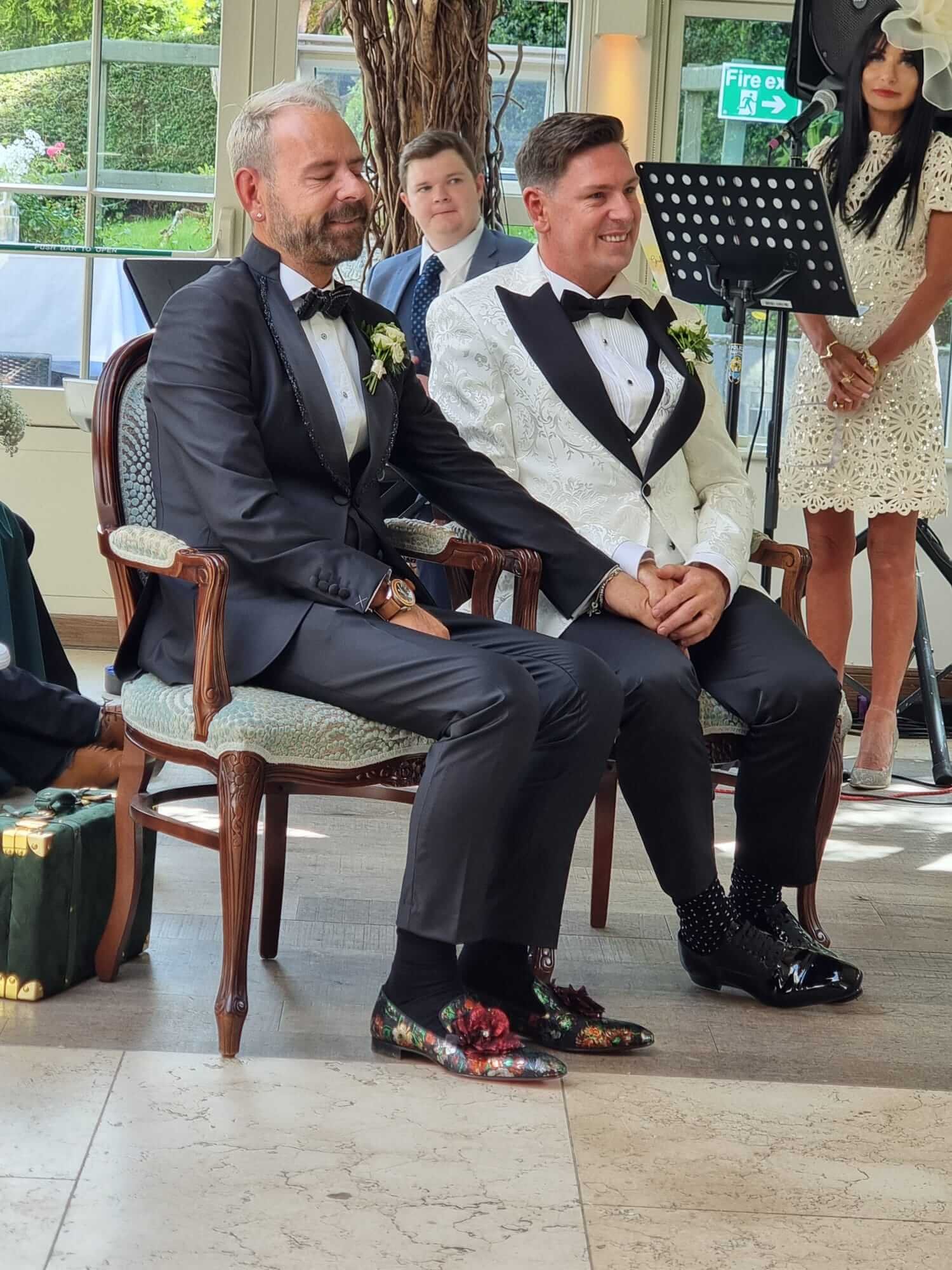
What do you need for the Registrars Appointment?
Documents everyone needs for registrar
Both of you must bring the original and a colour photocopy of the photo page of one of the following:
- passport
- refugee card or asylum card issued by the Department of Justice
- national identity card from an EU country accepting them as a travel document
- Photo ID documents must be in date.
You will also need:
- the original and photocopy of your birth certificates
- proof of address – original and photocopy dated within last 3 months
- your Personal Public Service (PPS) Numbers
You will also need for registrar
- proof of address – original and photocopy of a utility bill
- Personal Public Service (PPS) Number – if you have a current address, or will have a future address, in Ireland
- nature of ceremony – civil, religious or secular
- name of the solemniser
- name and address of the proposed venue
- name and date of birth of both witnesses
- If one of you is not an EU citizen
Do I need to know what kind of Wedding ceremony I want?
Yes! You need to know what type of ceremony or solemniser you are using to get married. For me it is a religious wedding ceremony. But don’t worry, it’s all faiths and none!
We are inclusive too so we love gay weddings!
Ceremony details:
You will need to provide the following information about your ceremony:
- the type of service
- name and address of the proposed venue
- name of the solemniser
- name and date of birth of both witnesses
Do I need to translate documents for a legal wedding?
Translation and authentication of documents
If your documents are not in English or Irish you must provide translations.
- Public documents issued by an EU member state should be accompanied by a Multilingual Standard Form (MSF), which is a translation and authentication document accepted across the EU.
- If you were born outside the EU and you do not have an acceptable form of photographic ID (for example a valid passport, Public Service Card, etc.), you will require an apostille stamp or letter from your Embassy/Diplomatic Mission confirming the authenticity of your certificates.
Please bring up-to-date evidence of your immigration status.
If you speak to each other in a language that is not English or Irish, you must provide an interpreter. You will also need to do this at the ceremony.
What documents do I need to Bring if I am divorced?
You will need an original or certified copy, and photocopy, of your divorce decree. If there is a stay on the divorce decree, bring this too.
Contact a civil registration service for advice if you divorced in another country. All foreign divorces will be examined by the General Register Office to determine whether it can be recognised in the State.
What documents do I need to bring if I am a Widow or a widower?
If you’re a widow or widower
You will need the:
- original and photocopy of the civil marriage certificate
- original and photocopy of the civil death certificate of late spouse
What documents do I need if I was in a Civil Partnership?
If you’re in a civil partnership?
Please contact a civil registration service if you want to get married.
Note: You will need the original and a photocopy of the civil partnership certificate.
What if you were Previously in a civil partnership?
For a previous civil partnership, you will need the final decree of dissolution.
What if you’re a surviving civil partner?
You will need the:
- original and photocopy of the civil partnership certificate
- original and photocopy of the civil death certificate of late civil partner
What if you have a civil annulment?
You will need the:
- original and photocopy of the civil annulment court order
- court letter and photocopy confirming there is no appeal lodged against the order
Phew! theres a lot of stuff to take in!
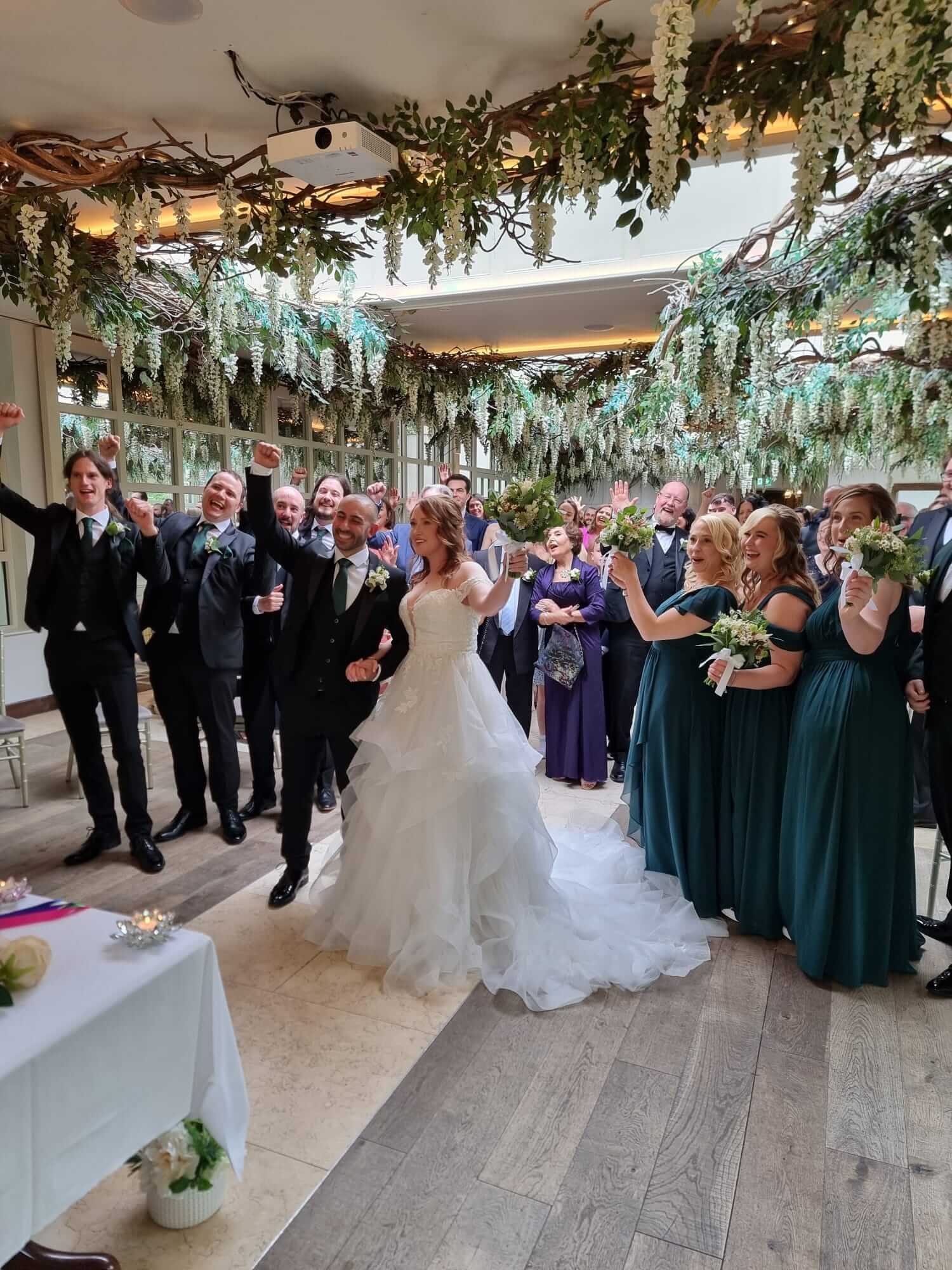
Confused about getting married?
If you want to marry in Cork give me a call or email me if you find it confusing. We do it all the time so no question is too difficult and if it is we know the right people to ask!
Alternative Legal Wedding?
Ok, so you have read the small print and you really want to get married by the beach or in the forest or some place that is special to you both. Of course no matter where you marry in Cork it will be special! This can be done if you are willing to compromise a little…
Seperate the wedding ceremony from the legal ceremony?
You could do the legal part of the wedding separately to the ceremony part of the wedding. The legal part is quite short and the only people necessary to be present are you, the couple and the 2 witnesses and of course the Registered Solemniser.
Then later go to the venue of your choice with all family and guests and do the wedding ceremony with all the things you wish to do and you get exactly what you wish for, the wedding of your dreams. It is easier perhaps less expensive to have the legal part and the ceremony part all as one! You can discuss this with me or any religious solemniser you choose to go with.
If you are confused about getting married in Cork or still have questions just drop me an email or call me. I’m sure there is nothing that either my colleagues or I will not have come across and we are only here to help you.
It will all be worth it. You will have the best wedding, you ever dreamed of!
Can I get married at any time I want?
Yes you can if you know how to go about it!
To be fair the information above, even though detailed is still abbreviated and shortened. The legislation around legal weddings in Ireland is quite nuanced and the devil is in the detail!
For example a Civil Registrar can marry you outside of the Registry office, for an additional fee, but the venue has to be pre-approved by them, whereas a Religious Solemniser approves your venue. Further, Civil Registrars only work Monday to Friday, whereas most Religious Solemnisers will marry you on a day and time of your choice once they are available.
So if you want to marry in Cork at a venue of your choice at a time of your choice get in touch.
If you are interested in marrying anywhere else get in contact also and I will put you in touch with another OneSpirit Ireland Celebrant.
Getting married with a religious solemniser?
Secular Solemnisers such as those from a Humanist background don’t believe in anything spiritual at all. Basically when we die that’s it. Personally, I cannot state categorically that there is something more to life, but when I look up at the moon and stars at night, I do like to think and believe that there is something more than me! The beauty of Interfaith and a religious solemniser, is that it is all faiths AND NONE! We take you as we find you! If there’s something more then there is, if not…
Further, traditionally Religious solemnisers were from the main faiths, in Ireland, mainly Catholic. A priest, from a Catholic Church being a religious solemniser, is unlikely to marry you outside of the building of the church. He (and it is always he) is also unlikely to allow you choose your own readings, music etc. The format will be a mass with you getting married in the Church and for many people that is perfectly fine, indeed I got married first time around this exact way. However, that day was definitely not my day, my way!
If you are gay or lesbian, and wish to get married in a Religious Catholic ceremony, it cannot be done. At least not yet anyway!

Get your information together before your appointment with the registrar
Finally, regarding the information necessary for the Civil Registrar Service, this information was taken almost directly from their website. They also have a data capture form on their site, which is useful to download before your appointment. You won’t forget anything then! Their advice is that if you bring all the information the first time, one visit will be sufficient. Once they have the information you give you the MRF, which is the document that gets you married legally. This allows you to marry in Cork or indeed anywhere in Ireland!
It may all seem rather daunting, but once you know what to expect, it is all rather easy, really and if you have any concerns or more queries just drop me an email or call me or any of my Religious Solemniser fellow Ministers. Trust me there is more detail but that’s enough for now!
It’s not all serious though…
